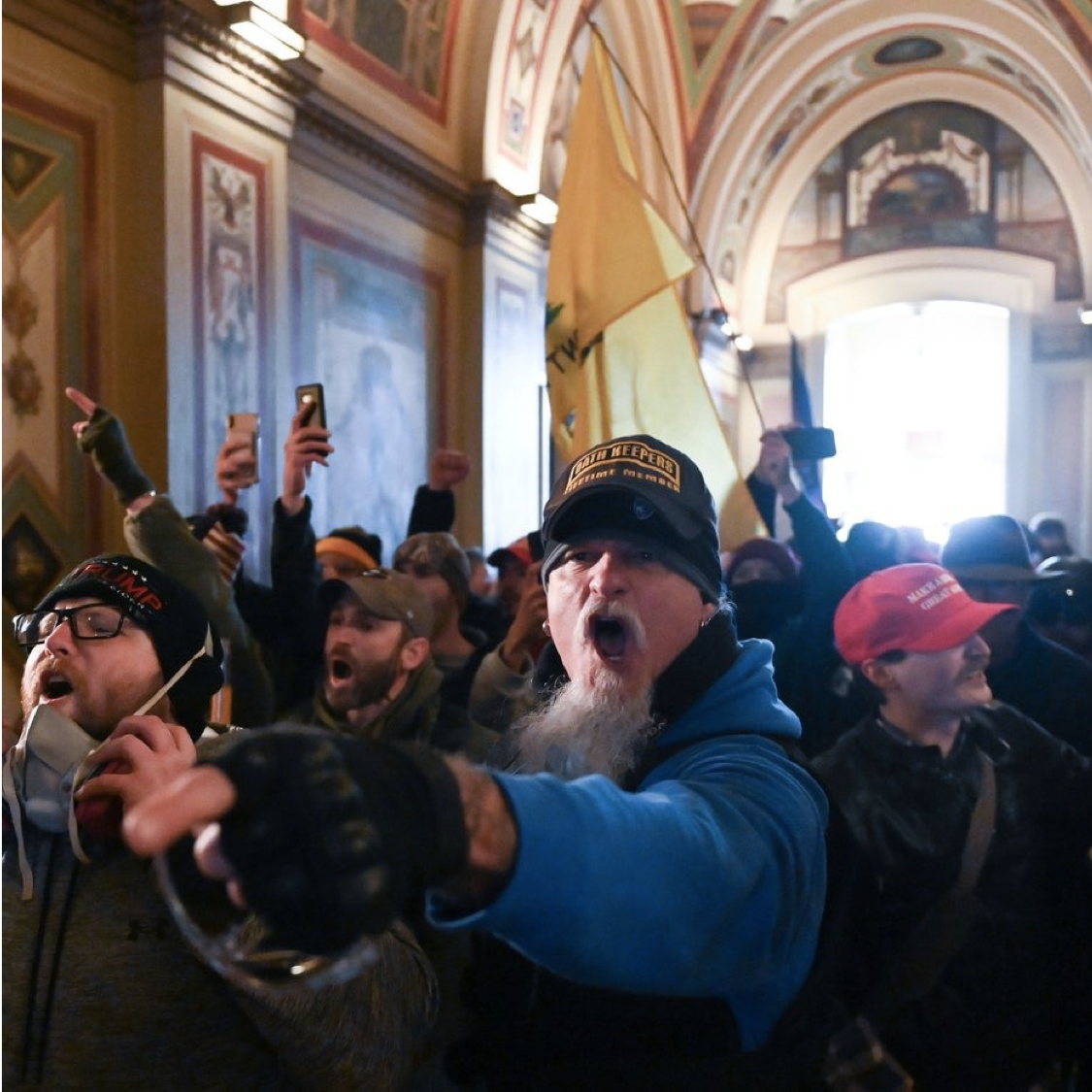Explicit or implicit, every organization and brand has a set of values.
At Elasticity, we seek to stretch the boundaries of marketing; Chick-fil-A works to live conservative Christian values revolving around a culture of caring; Coca-Cola seeks to deliver a spirit of family-friendly fun to consumers; Nintendo’s wants to redefine entertainment; and World Wrestling Entertainment just pours gasoline on top of combat sports and lights it on fire.
Good, bad or somewhere in between — all brands aspire to be something in their own unique way that defines them.

As American society further fractures, it’s becoming more difficult for brands to appeal to what is evolving into two distinctly oppositional demographics — right and left — that agree on nearly everything minus politics and what defines facts. This has only intensified in the wake of this summer’s social unrest which produced the most costly riots in U.S. history, followed by the recent attempted insurrection in the U.S. Capitol. It raises the question of how brands can balance their own values in catering to consumers who favor toppling the democratic framework upon which this nation was built.
Certainly far-right republicans enjoy ice cream, but does Ben & Jerry’s want to sell products to them? One would imagine they do. Or Amazon, which cut off free speech Facebook alternative Parler — would it rather conservatives not purchase products from its retail platform?

Conversely, consider a brand like In-and-Out Burger which literally wears its values on its sleeves, putting biblical verses on cups and wrappers. One might presume the burger chain has a cultural bond with supporters of President Donald Trump. But with Christian leaders like Pat Robertson now distancing themselves from the president, could the restaurant chain speak out against the insurrectionists who are now allegedly planning to conduct armed protests at state capitals in the coming weeks? Who’s to say? Stranger things have happened

The stakes are only growing, and doing so along a narrowing tightrope. Any brand speaking out against Trump supporters — no matter what their values may be — risks alienating some 70 million-plus voters or nearly one-third of Americans with real buying power. Much like the bravery demonstrated by many of the Capitol Police on Jan. 6, can brands demonstrate backbone in the face of an angry mob?
“People and brands need to act with integrity and authenticity,” said one C-suite executive at Fortune 50 company, taking a harder-line view. “DJT has failed at every step in his life to do either. If holding him accountable for his actions loses my brand the purchasing power of white supremacists, neo-Nazis, and insurrectionists, so be it. Leaders lead. Brands and people have a moral responsibility to do the right thing.”
Corporate advocacy was seemingly more clear-cut when riots broke out this past summer following the murders of George Floyd, Breonna Taylor and Ahmaud Arbery. Brands quickly flocked to stake out a position of solidarity with the Black Lives Matter movement. Walmart made a $100 million commitment over five years to create a new center for racial equity; Home Depot announced a $1 million donation to the Lawyers’ Committee for Civil Rights Under Law; Square Enix made a $250,000 donation in addition to matching employee contributions to BLM and other charities; and Etsy contributed $1 million to the Equal Justice Initiative and the Borealis Philanthropy’s Black-Led Movement Fund and will match employee donations.
More recently, brands like Marriott, Airbnb, Hallmark and Blue Cross Blue Shield said they will suspend donations to lawmakers who voted against certifying President-elect Joe Biden’s victory. However, it’s easier to throw shade at a member of Congress. Public pronouncements against rioters — representing masses of buyers of products and services — and the democracy they sought to undermine in Washington, well, those have been more muted.
“For a global brand with a national presence, you must consider the relevance of your global voice in national discourse,” said the chief digital officer of one of the world’s largest automakers. “Will your voice mean anything or change anything, really? It comes down to really knowing your audience. Unless you are squarely in the demographic of Trump’s 70 million voters who openly support the acts of insurrection and part of the ‘made in the USA’ movement, you’re best staying out of the conversation. But if your platform leans toward the left — environment, pro-choice — then you likely have customers who align with those values and may even expect some level of interaction. For large, global brands with either a U.S. headquarters or significant operations there, there’s likely not a lot of upside to engaging in any overt way in the political discourse.”
While brands certainly stake out organizational values and attempt to live them, clearly many will use some degree of pliability, being beholden to the realistic pressures of shareholders and customers.

In 2008, I suggested to my then-client UPS that they use the side of their ubiquitous brown trucks as advertising platforms. I was looked at cross-eyed, but apparently more practical heads ultimately prevailed as now Taylor Swift is dropping albums on the sides of UPS delivery trucks. Even Chik-fil-A — for years a beacon of conservative consistency — bent in the face of mass-market pressures in late 2019, when the restaurant chain stopped funding two Christian charities with histories of opposing gay marriage
Will brands like Pampers, Chevy or Pepsi stand up and say that if you support undermining the democratic process, we don’t want you? It’s unlikely, as again, the tightrope is so narrow that it could insinuate that each one of Trump’s 70 million-plus supporters is a white supremacist, neo-nazi or insurrectionist.
In the end, more often than not, there is no consistent roadmap or easy answer in the face of controversy.
While it is wonderfully noble to create a foundational set of values and work as hard as possible to live them, practicality often takes hold and brands become prisoners of the moment, hoping that those organizational values at least shade behaviors in a positive direction.



